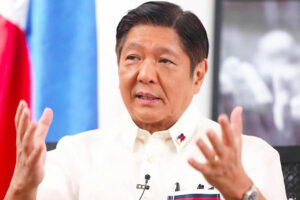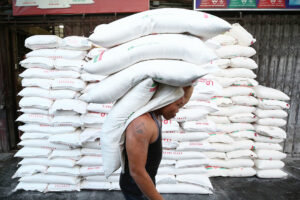PHILIPPINE PRESIDENT Ferdinand R. Marcos, Jr. said corruption cases tied to infrastructure spending must be backed by solid evidence, warning that weak filings could lead to failed prosecutions.
“We have to follow the law, otherwise whatever we do is not legitimate,” he said in a preview of his podcast released by the Presidential Communications Office on Sunday. “We know many of these people are not innocent. But if you’re going to bring them to court, you must have a very strong case.”
He said incomplete evidence could result in dismissals, which he described as “much, much, much worse.”
The podcast episode is expected to focus on due process and credible evidence in corruption probes. The President last month formed the Independent Commission for Infrastructure (ICI) to investigate irregularities in projects of the Department of Public Works and Highways (DPWH). The commission can recommend criminal, civil or administrative cases against erring officials.
In his State of the Nation Address on July 28, Mr. Marcos rebuked those involved in questionable flood control projects, saying they should be “ashamed.” He also launched the Sumbong sa Pangulo website, which lets citizens flag substandard or nonexistent public works.
Senator Panfilo M. Lacson said the chamber’s blue ribbon committee has suspended its own inquiry into flood control anomalies “until further notice,” citing pending documents and a packed schedule of budget deliberations and Commission on Appointments sessions.
The controversy is under review by several bodies, including the Department of Justice, ICI and the Senate.
Meanwhile, Las Piñas Rep. Mark Anthony G. Santos questioned the DPWH for dropping its mandatory integrity pledge for contractors, a safeguard against collusion and corruption in project bidding.
“The integrity pledge was no longer enforced as a mandatory requirement,” he said in a statement. “To this day, there is no clear public document explaining why it was removed or allowed to lapse.”
He urged former DPWH Secretary and Senator Mark A. Villar to explain why the requirement was not upheld during his tenure.
The senator, who has been drawn into a widening probe of irregular flood control projects, said last week he had no ownership ties to companies bidding for DPWH contracts. “I welcome and fully support any investigation into these issues, as I have nothing to hide and believe firmly in accountability and due process,” he said in a statement.
The Department of Justice said Mr. Villar would be included in its investigation of anomalous flood control projects, citing possible conflict of interest. The Independent Commission for Infrastructure has also invited him to its hearings.
Mr. Santos said the integrity pledge added a crucial safeguard beyond existing procurement laws. “By stripping away this safeguard, the bidding system fell back to the bare minimum protection of the procurement law,” he said.
Introduced under Department Order No. 86 in 2013, the pledge required all contractors to sign a commitment against corruption and collusion, and was included in official bidding documents. Contractors also had to be listed on the DPWH Registry of Contractors to qualify.
“The integrity pledge was the seatbelt and CCTV of the bidding process,” Mr. Santos said. “While procurement laws were already in place, the pledge served as an added moral and reputational safeguard to deter collusion.”
He added that its absence might have allowed collusion to thrive.
The DPWH is under mounting scrutiny over multibillion-peso anomalies in flood-control projects, where public funds were allegedly siphoned off by contractors and officials. — Erika Mae P. Sinaking and Adrian H. Halili






